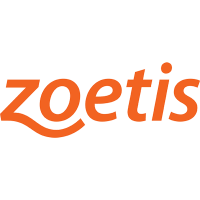
Johnson & Johnson
NYSE:JNJ

 Johnson & Johnson
Cost of Revenue
Johnson & Johnson
Cost of Revenue
Johnson & Johnson
Cost of Revenue Peer Comparison
Competitors Analysis
Latest Figures & CAGR of Competitors

| Company | Cost of Revenue | CAGR 3Y | CAGR 5Y | CAGR 10Y | ||
|---|---|---|---|---|---|---|

|
Johnson & Johnson
NYSE:JNJ
|
Cost of Revenue
-$27.4B
|
CAGR 3-Years
-5%
|
CAGR 5-Years
0%
|
CAGR 10-Years
-2%
|
|

|
Bristol-Myers Squibb Co
NYSE:BMY
|
Cost of Revenue
-$11.9B
|
CAGR 3-Years
-8%
|
CAGR 5-Years
-9%
|
CAGR 10-Years
-12%
|
|

|
Pfizer Inc
NYSE:PFE
|
Cost of Revenue
-$16.4B
|
CAGR 3-Years
19%
|
CAGR 5-Years
-15%
|
CAGR 10-Years
-6%
|
|

|
Merck & Co Inc
NYSE:MRK
|
Cost of Revenue
-$12.3B
|
CAGR 3-Years
2%
|
CAGR 5-Years
-2%
|
CAGR 10-Years
3%
|
|

|
Zoetis Inc
NYSE:ZTS
|
Cost of Revenue
-$2.7B
|
CAGR 3-Years
-6%
|
CAGR 5-Years
-7%
|
CAGR 10-Years
-5%
|
|

|
Eli Lilly and Co
NYSE:LLY
|
Cost of Revenue
-$8.4B
|
CAGR 3-Years
-5%
|
CAGR 5-Years
-12%
|
CAGR 10-Years
-5%
|
|
Johnson & Johnson
Glance View
Founded in 1886, Johnson & Johnson began its journey with a commitment to revolutionizing healthcare, starting with the sterile surgical dressings it produced to reduce infections in hospitals. Over the decades, this vision expanded into a global healthcare powerhouse, intricate in its operation yet unified in its mission to improve lives. Johnson & Johnson's business model is built on three core segments: pharmaceuticals, medical devices, and consumer health products. Each segment harnesses the synergy of innovation, research, and a deep understanding of customer needs. The pharmaceutical division, one of its most robust, thrives on producing treatments for various medical conditions, including immunology, oncology, and neuroscience. It is in this domain that cutting-edge research and development efforts translate into high-margin therapies, driving substantial portions of the company's revenue. Beyond pharmaceuticals, the medical devices segment forms a pillar of Johnson & Johnson's operations, offering a spectrum of products essential for surgeries, orthopedics, and vision care. These devices are integral for modern healthcare practices, with their premium positioning contributing significantly to the company’s financial health. Meanwhile, Johnson & Johnson's consumer health division addresses everyday wellness needs, with iconic brands like Band-Aid, Tylenol, and Neutrogena. This segment leverages global brand recognition and trust to generate steady, albeit lower-margin, income streams. Together, these segments compose a diversified revenue platform, buffered against sector-specific downturns and positioning Johnson & Johnson as a formidable entity in global healthcare markets.

See Also
What is Johnson & Johnson's Cost of Revenue?
Cost of Revenue
-27.4B
USD
Based on the financial report for Dec 29, 2024, Johnson & Johnson's Cost of Revenue amounts to -27.4B USD.
What is Johnson & Johnson's Cost of Revenue growth rate?
Cost of Revenue CAGR 10Y
-2%
Over the last year, the Cost of Revenue growth was -5%. The average annual Cost of Revenue growth rates for Johnson & Johnson have been -5% over the past three years , and -2% over the past ten years .















































 You don't have any saved screeners yet
You don't have any saved screeners yet